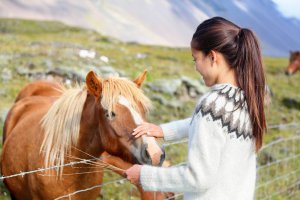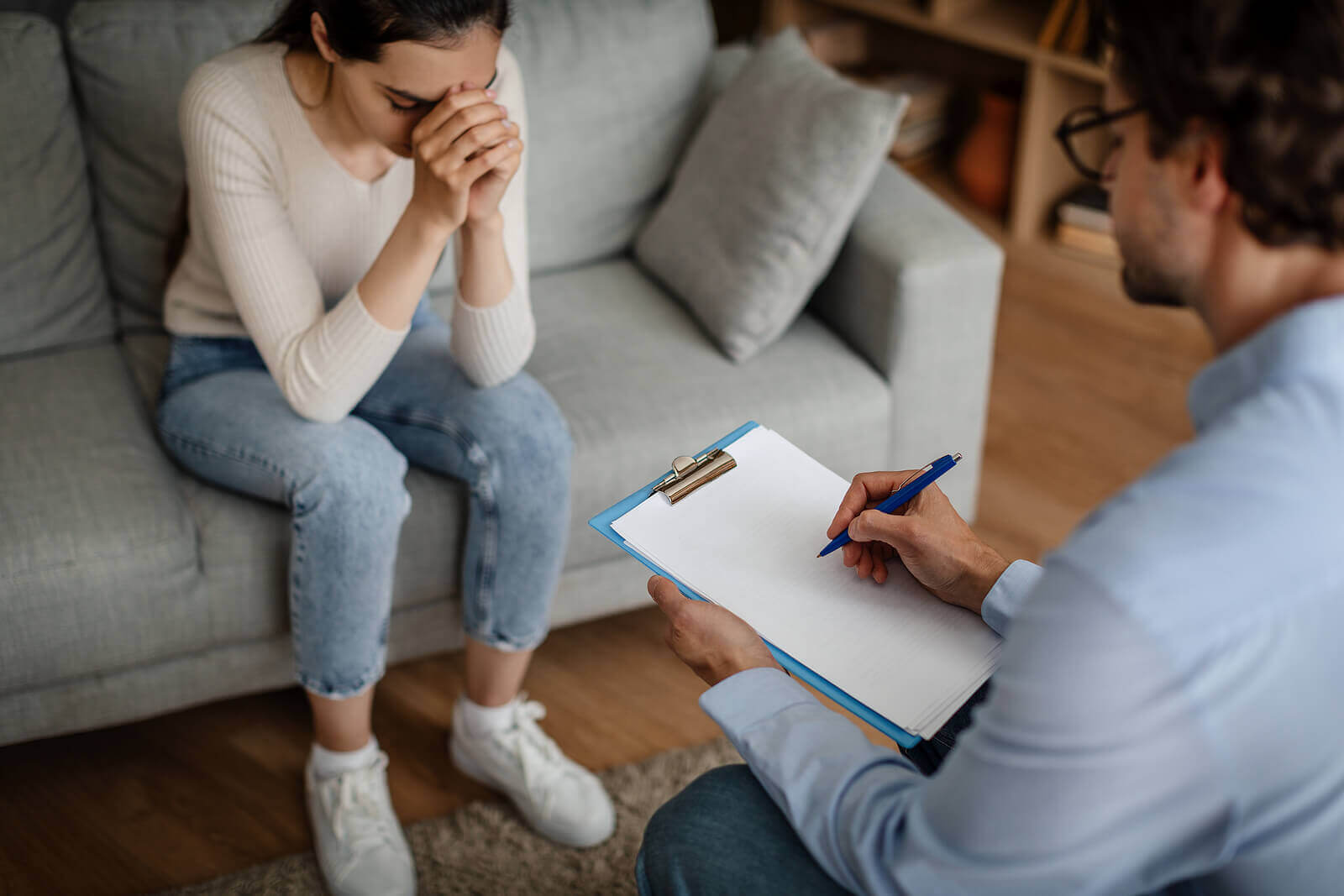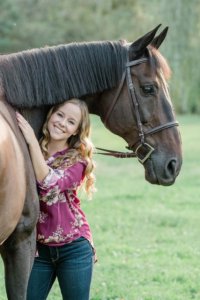If you’ve experienced a distressing or traumatic experience with horses, you know how difficult it can be to mentally and emotionally heal. I discuss this more in my blogs on Equestrian Trauma. I have also written about how equestrians can find healing following an injury. If connecting with like-minded others and practicing work on your own is not helping, it may be time to consider speaking with a licensed mental health professional.

We would do anything for our horses. We know they are worth whatever treatments are out there for them. You are also worth the healing and feeling back to yourself.
What is EMDR?
EMDR is an evidence-based practice that helps individuals heal from trauma memories. While EMDR will never make the memory “go away,” it can help the trauma memory feel less triggering and distressing. We can accomplish this through bilateral stimulation, which basically means that we are activating both sides of the brain through tapping, eye movements, or audio. And yes, this can work over video telehealth! We have more information on how EMDR works along with frequently asked questions.
EMDR for Equestrians Outside of the Barn
Sessions will either take place at the office or via telehealth in your own home/private space. While we won’t be working at the barn with you and your horses, the work you do and the skills you learn within sessions will carry with you to the barn.
EMDR can help you feel less hypervigilant around your horses and while riding. We will work through the traumatic memory (or memories) and also prepare you to feel safe and confident in your riding again if that is something you choose to do. EMDR therapy can also help decrease other symptoms of trauma such as flashbacks, nightmares, and intrusive thoughts about the horse-related accident.
What does the EMDR therapy process look like for Equestrians?
When our horses are having a procedure done, we want to know the ins and outs of how it works and how our horses will benefit. It’s great to think of therapy in that perspective, too. While the course of treatment and length of time each person participates in EMDR can vary, we always follow the 8 phases of the EMDR structure. Below, I’ll explain the phases and an example from each.
*The following examples are not from any client’s specific experience.
Phase One: History taking and treatment planning
This is where we will meet for 90 minutes to 2 hours to discuss what’s bringing you into therapy, what your goals are, and how we will reach those goals. It’s also important to get some background information, especially if there is a history of trauma.
Example: This is where we will get a well-rounded overview of what has been going on for you. While you may have come into therapy to discuss a recent fall off your horse, we will also talk about your passions, family, childhood, and more.
Phase Two: Preparation
We discuss what EMDR therapy looks like and how it can be helpful. You will build internal resources to strengthen your coping and management of emotions and traumatic responses. We will also address the possible side effects of EMDR, such as nightmares or intrusive thoughts. These side effects can occur between reprocessing and desensitization sessions.
Example: You may have strange dreams or more memories of the fall after beginning EMDR work. This is because your brain is still reprocessing even after you’ve left the office.
Phase Three: Assessment

Example: The target memory you chose to work with might be the fall from your horse. Your therapist will then ask you to rate how distressing this memory is to you on a scale of 1 to 10, with 10 being the most intense. You choose a negative belief, which might be “I am not safe.” Then you rate how true this feels on a scale of 1 to 7, with 7 being the most true. The therapist will then ask you to choose a statement you would like to believe instead (aka positive cognition), which may be, “I am safe now.” You will then also rate the VOC of that statement on a scale of 1 to 7, with 7 being the most true.
Phase Four: Desensitization
This is where we begin using bilateral stimulation (BLS) while focusing on the target memory. We continue to use the BLS until we have reduced the SUD to a one or a zero.
Example: Your therapist will ask you to pull up the memory and image of the traumatic event of the fall while incorporating the BLS. You will work through a few “sets” of the BLS. Your therapist will check in between sets to see if anything new or any changes are coming up for you.
Phase Five: Installation
This entails connecting a positive belief about the event and associating it with the trauma memory until it feels true. We do use slower BLS for this phase.
Example: Many individuals find that by this phase their mind has naturally moved to a place where it is processing, “I am safe now,” and even adding other positive beliefs like, “I can be safe with my horse.”
Phase Six: Body Scan
Before ending, clients do a body scan from head to toe, to see if they are holding onto anything from the session. If there’s any discomfort, the client will continue to reprocess until it is gone.
Phase Seven: Closure
Before ending the session, we ensure the client has returned to a state of calm and back into the here and now.
Phase Eight: Reevaluation

Start Working With an EMDR Therapist in Branchburg, NJ
It can be overwhelming searching for the right therapist and treatment modality following an equestrian-related accident. EMDR is an evidence-based treatment and has helped many equestrians get back in the saddle and feel confident again. You are worth the healing! Reach out to our team of caring therapists to learn more about how EMDR may be helpful for equestrians today. You can start your therapy journey with Brave Minds Psychological Services by following these simple steps:
- Contact us at Brave Minds Psychological Services.
- Speak with one of our caring counselors.
- Start healing from past equine trauma!
Other Services Offered by Brave Minds Psychological Services
Therapy for equestrians and EMDR isn’t the only service offered by our practice. Our team understands that you may experience concerns with more than one mental health concern, which is why we are happy to offer a variety of services in support of your overall well-being. We provide couples counseling, postpartum counseling, food allergies, and birth trauma therapy. In addition, we also offer therapy for trauma and anxiety. Our caring counselors provide mental health services for adults, teens, and children. We offer treatment for teen anxiety, social phobia in teens, child sexual abuse, child anxiety, and more. Prefer building a support network with group therapy? Our therapists also offer several options for group therapy. Our services are offered in person at our Scotch Plains, NJ office and through online therapy in New Jersey.
Learn more about working with us at our Equestrian Anxiety page.
Contact us for a video or phone consultation.
(908) 242-3634 or Connect Now



